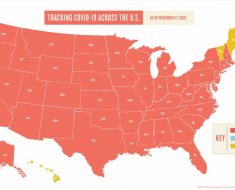Simultaneous administration of a COVID-19 mRNA booster shot and the seasonal influenza vaccine slightly increased the risk of systemic reactions during the following week compared with a booster shot alone, but most of the reactions were mild, a retrospective cohort study shows.
“Local injection site reactions, such as pain and redness, and systemic reactions, such as fever and muscle aches, are common reactions to many types of vaccines but are generally mild and resolve quickly,” Anne Hause, PhD, Centers for Disease Control and Prevention (CDC), Atlanta, Georgia, told Medscape Medical News in an email.
“So the CDC continues to recommend that COVID-19 vaccines may be administered without regard to timing of other vaccines, including the COVID-19 booster and flu vaccination at the same visit,” added Hause, the lead author.
The study was published online July 15 in JAMA Network Open.
Dual Vaccination, Double Protection
In an invited commentary, Kathyrn Hall, PhD, MPH, Brigham and Women’s Hospital, Boston, Massachusetts, and colleagues also argue in favor of concomitant administration of a COVID-19 booster and influenza vaccine.
Coadministration could support uptake of both vaccines, they note, and it could augment protection against both infectious diseases. “Vaccine coadministration could also introduce efficiencies in currently overburdened health care settings,” they write. Moreover, a 2021 phase 4 trial that evaluated the simultaneous administration of the Pfizer BioNTech and influenza vaccines raised no safety concerns.
“Nationally, during the 2020 to 2021 season, influenza vaccination coverage was only 50.2%,” Hall and colleagues point out. Thus, despite the slightly elevated risk of systemic events with dual vaccination, public health campaigns to increase dual vaccination should be undertaken, along with efforts to provide both vaccines in clinical and community-based settings, they write.
“Given the small increase in rate of adverse events reported by Hause et al, health care systems should be encouraged to develop routine and streamlined processes for coadiministration of these vaccinations,” they state. They also note that clinical trials have found reactogenicity to vaccination is not wholly attributable to the contents or the delivery of a vaccine but to so-called “nocebo” effects prompted by anxiety and expectation of adverse events on the part of recipients.
V-Safe Study
To probe the safety of simultaneous vaccination, Hause and her colleagues turned to v-safe, the large CDC vaccine surveillance self-report registry. Of nearly one million participants in the smartphone-based monitoring system, 92,023 received a seasonal influenza vaccine together with either the Pfizer BioNTech or the Moderna booster between September 2021 and May 2022. The booster was defined as the third dose of the COVID-19 mRNA vaccine given at least 5 months after the second dose.
In the week following dual vaccination, 58.9% of respondents who received the Pfizer BioNTech COVID-19 booster plus the flu shot and 68.6% of those who received the Moderna COVID-19 booster shot plus the flu shot reported mild to moderate reactions.
The most common reactions were fatigue, headache, and myalgia, the authors note. After controlling for sex, age, and week of vaccination, respondents who simultaneously received the Pfizer BioNTech booster and the flu shot were found to have an 8% increased risk of having a systemic reaction (adjusted odds ratio [aOR], 1.08; 95% CI, 1.06 – 1.10), compared to those who received the mRNA booster alone. Those who received the Moderna booster shot had an 11% increased risk of having a systemic reaction (aOR, 1.11; 95% CI, 1.08 – 1.14), compared to those who received the booster alone.
The slight increase in reactions to the paired vaccinations had little health impact with the Moderna booster and none with the Pfizer BioNTech COVID-19 booster, as measured by normal daily activities, an inability to work or attend school, or the need for medical care, telehealth, a clinic or emergency visit, or hospitalization.
“Providers should offer their patients all age-appropriate recommended vaccines and counsel patients that some people experience reactions like fever, body aches or tiredness more frequently after receiving more than one vaccine,” Hause told Medscape Medical News. “But [if they do develop] symptoms, symptoms can be managed with an antipyretic or analgesic medication,” she added.
Hause noted that the CDC does not recommend that patients take an antipyretic or analgesic medication prior to receiving a vaccine to prevent post-vaccination symptoms, largely because it’s not certain whether these medications can affect the immune response to vaccination. “However, these medications may be taken after vaccination to treat symptoms,” she said. She cautioned that aspirin is not recommended for persons younger than 18 years because of the risk of Reye’s syndrome.
Hause and Hall have disclosed no relevant financial relationships.
JAMA Netw Open. Published online July 15, 2022. Full text, Commentary
For more news, follow Medscape on Facebook, Twitter, Instagram, and YouTube.
Source: Read Full Article





